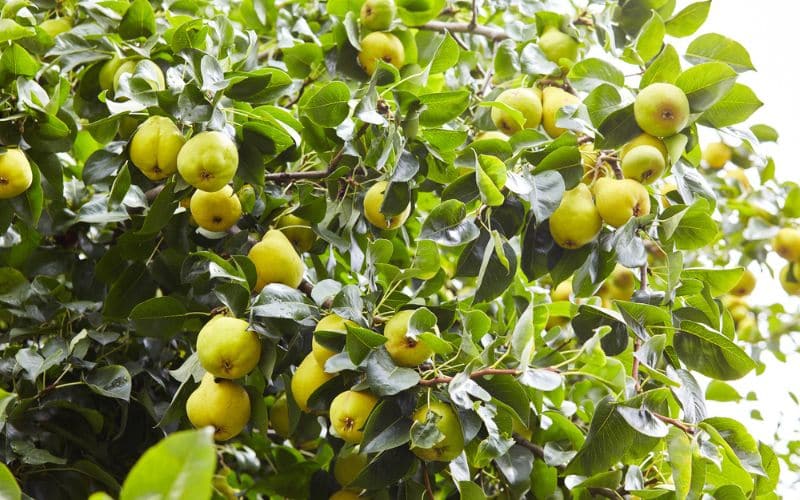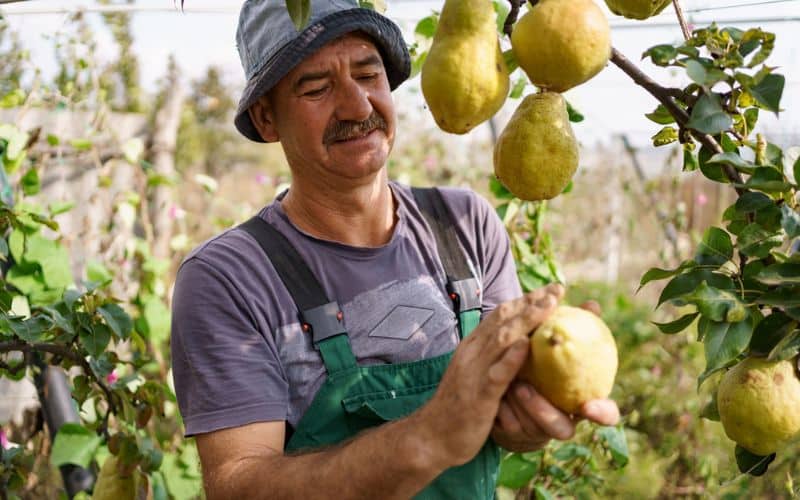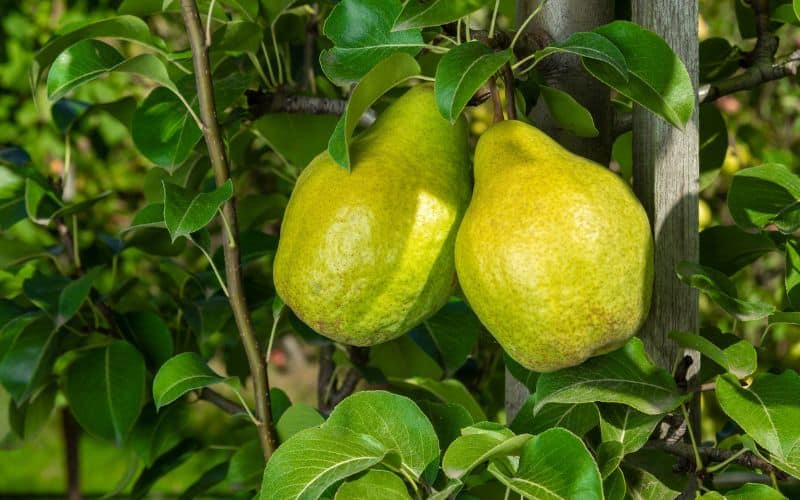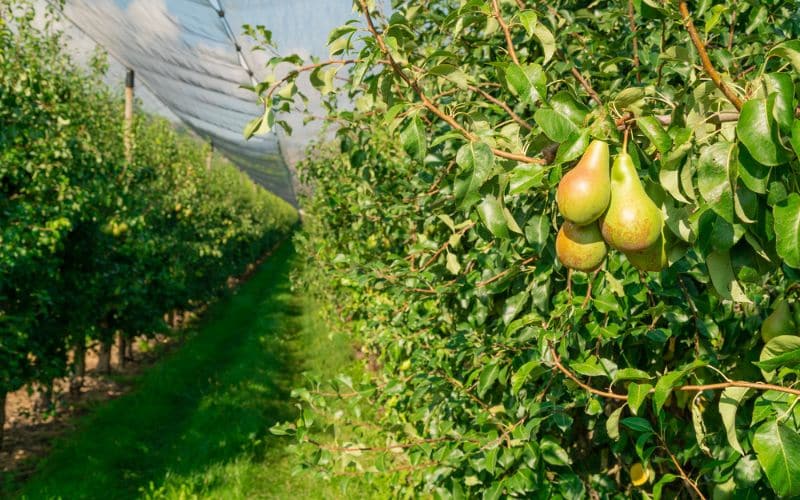
Ontario’s landscape is graced with the presence of pear trees, a symbol of both agricultural prosperity and cultural heritage. With its diverse climate zones and nutrient-rich soil, Ontario provides an ideal environment for various pear cultivars to thrive. But the significance of pear trees in this Canadian province goes beyond mere cultivation.
Pear trees have become an integral part of Ontario’s agricultural economy, contributing to employment, export revenue, and local community development. The cultivation of pear trees supports numerous family farms, agri-businesses, and even culinary traditions, as pears find their way into local markets, restaurants, and family kitchens.
Moreover, pear trees hold a special place in the hearts of Ontarians. They are often associated with community, sustainability, and a connection to the land. Many local festivals celebrate the pear harvest, and pear-themed dishes are a staple in regional cuisine.
In environmental terms, the sustainable cultivation of pear trees reflects Ontario’s commitment to responsible farming practices, biodiversity, and ecological balance. Pear orchards not only beautify the landscape but also play a role in soil conservation and provide habitats for various wildlife.
Pear Cultivars in Ontario
Bartlett
Origin: England
Harvest Time: Late August
Characteristics: Juicy, sweet, and aromatic
Uses: Fresh eating, canning, and desserts
Bosc
Origin: Belgium
Harvest Time: Late September
Characteristics: Firm, spicy flavor
Uses: Baking, poaching, and fresh eating
Anjou
Origin: France
Harvest Time: Early October
Characteristics: Mild flavor, smooth texture
Uses: Fresh eating, salads, and cooking
Flemish Beauty
Origin: Belgium
Harvest Time: Late September
Characteristics: Sweet, juicy
Uses: Fresh eating, canning
Pear Farming Techniques in Ontario
In the fertile lands of Ontario, pear farming is a blend of tradition, innovation, and environmental stewardship. The province’s pear farmers are committed to producing quality fruit, and their approach to cultivation reflects this dedication.
Modern Techniques
Ontario’s pear farmers leverage cutting-edge agricultural practices to optimize growth and yield. These include:
- Soil Preparation: Analyzing soil composition and employing targeted fertilization to create the ideal nutrient balance for pear trees.
- Planting: Utilizing strategic planting techniques that consider spacing, sunlight, and drainage to ensure healthy growth.
- Pruning: Implementing precise pruning methods to shape the trees, enhance airflow, and promote fruit development.
- Harvesting: Employing careful harvesting techniques to pick pears at the perfect ripeness, preserving flavor and texture.
Sustainable Practices
Sustainability is at the heart of pear farming in Ontario. Farmers emphasize practices that minimize environmental impact, such as:
- Water Conservation: Implementing efficient irrigation systems that reduce water usage while ensuring the trees receive adequate hydration.
- Integrated Pest Management: Using biological controls and selective pesticides to manage pests, reducing reliance on harmful chemicals.
- Soil Health: Practicing crop rotation and organic fertilization to maintain soil fertility and prevent erosion.
- Wildlife Preservation: Designing orchards that coexist with local wildlife, providing habitats and preserving biodiversity.
Collaboration and Education
Many Ontario pear farmers actively participate in research and collaboration with agricultural institutions. They engage in ongoing education, attend workshops, and work with experts to stay abreast of the latest advancements in pear cultivation.

Pear Preservation and Storage
Proper storage and preservation methods, such as canning and drying, allow consumers to enjoy Ontario’s pears year-round.
Economic Impact of Pear Farming in Ontario
Pear farming is more than an agricultural activity in Ontario; it’s an economic powerhouse. Here’s how it contributes:
- Employment: From orchard workers to marketing professionals, pear farming creates diverse job opportunities across the province.
- Export Value: Ontario’s pears are enjoyed not only locally but also internationally, contributing to the province’s export revenue.
- Local Communities: Pear farming supports local economies, with farmers’ markets, farm-to-table restaurants, and agri-tourism experiences.
- Innovation: Investment in research and development leads to new pear varieties and farming techniques, fostering innovation in the agricultural sector.
Environmental Considerations
Sustainable pear farming practices in Ontario focus on reducing water usage, minimizing chemical inputs, and promoting biodiversity.

Cultural Significance of Pears
Pears, with their sweet taste and elegant form, have long held a special place in various cultures around the world. In Ontario, this beloved fruit carries a unique cultural significance that transcends mere culinary enjoyment.
Symbolism
Pears are often associated with prosperity, fertility, and well-being. Their voluptuous shape and nourishing qualities have made them a symbol of abundance and health in many traditions.
Culinary Heritage
In Ontario’s diverse culinary landscape, pears feature prominently in both traditional and contemporary dishes. From classic pear tarts and preserves to innovative pear-infused beverages, the fruit’s versatility is celebrated across various cuisines.
- Festive Celebrations: Pears are often included in holiday feasts and special occasions, symbolizing joy and togetherness.
- Local Delicacies: Many local chefs and home cooks creatively incorporate pears into their recipes, showcasing the fruit’s adaptability and local flavor.
Art and Literature
Pears have also inspired art and literature, appearing in paintings, poems, and stories as symbols of beauty and sensuality. Their aesthetic appeal has captured the imagination of artists and writers alike.
Community and Festivals
In some regions of Ontario, pear harvest festivals are a community highlight, bringing people together to celebrate the bounty of the land. These festivals often include pear-themed contests, tastings, and educational activities, fostering a sense of community and connection to local agriculture.
Environmental Connection
The cultivation and enjoyment of pears also reflect a broader cultural emphasis on sustainability and connection to the land. Many Ontarians take pride in supporting local pear farmers and embracing environmentally responsible practices.
Conclusion
Pear trees in Ontario are more than just a source of delicious fruit. They represent a thriving agricultural sector, a healthy dietary choice, a culinary delight, and a symbol of cultural heritage. By understanding the different cultivars and their significance, we can appreciate the true value of pears in Ontario’s landscape.









